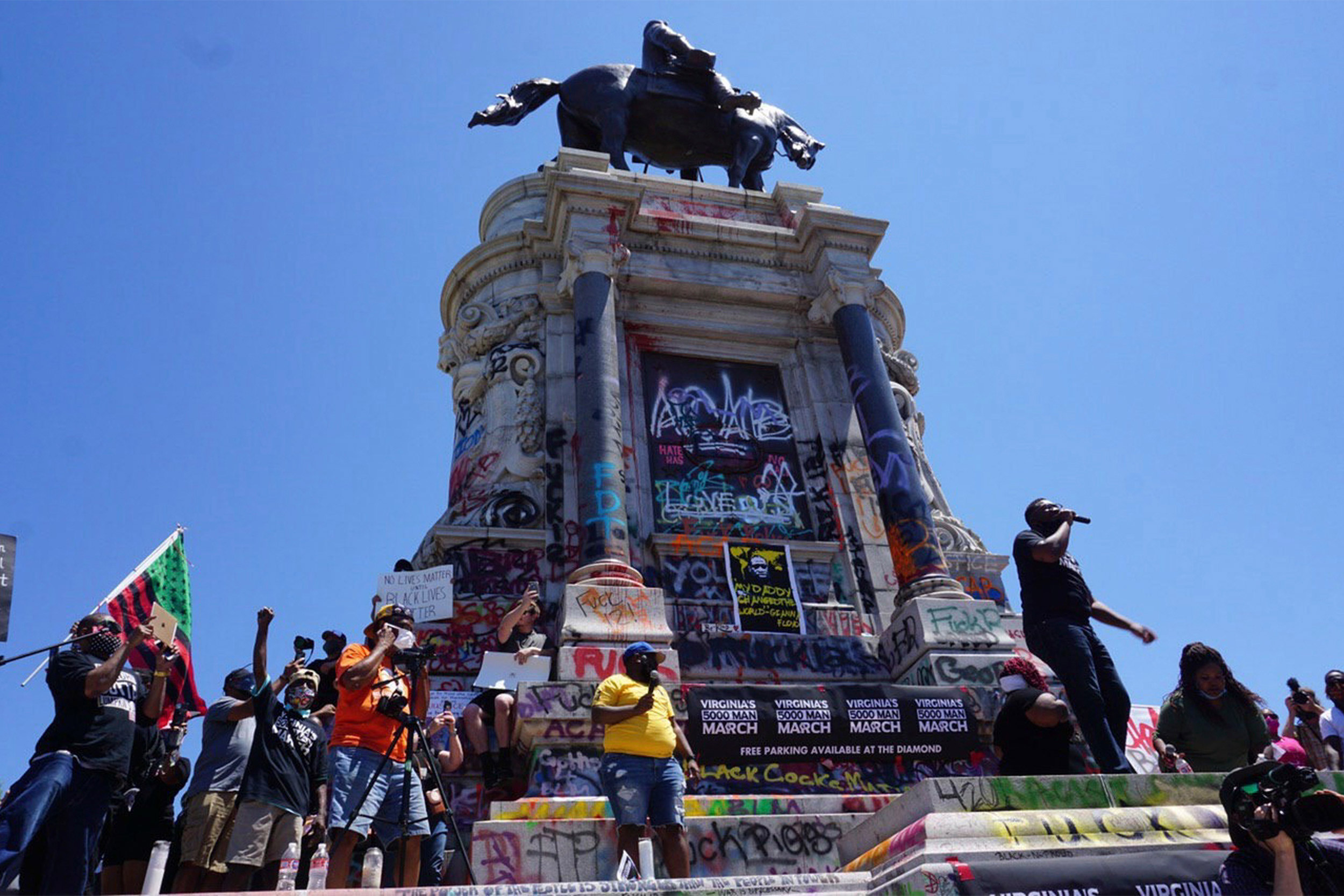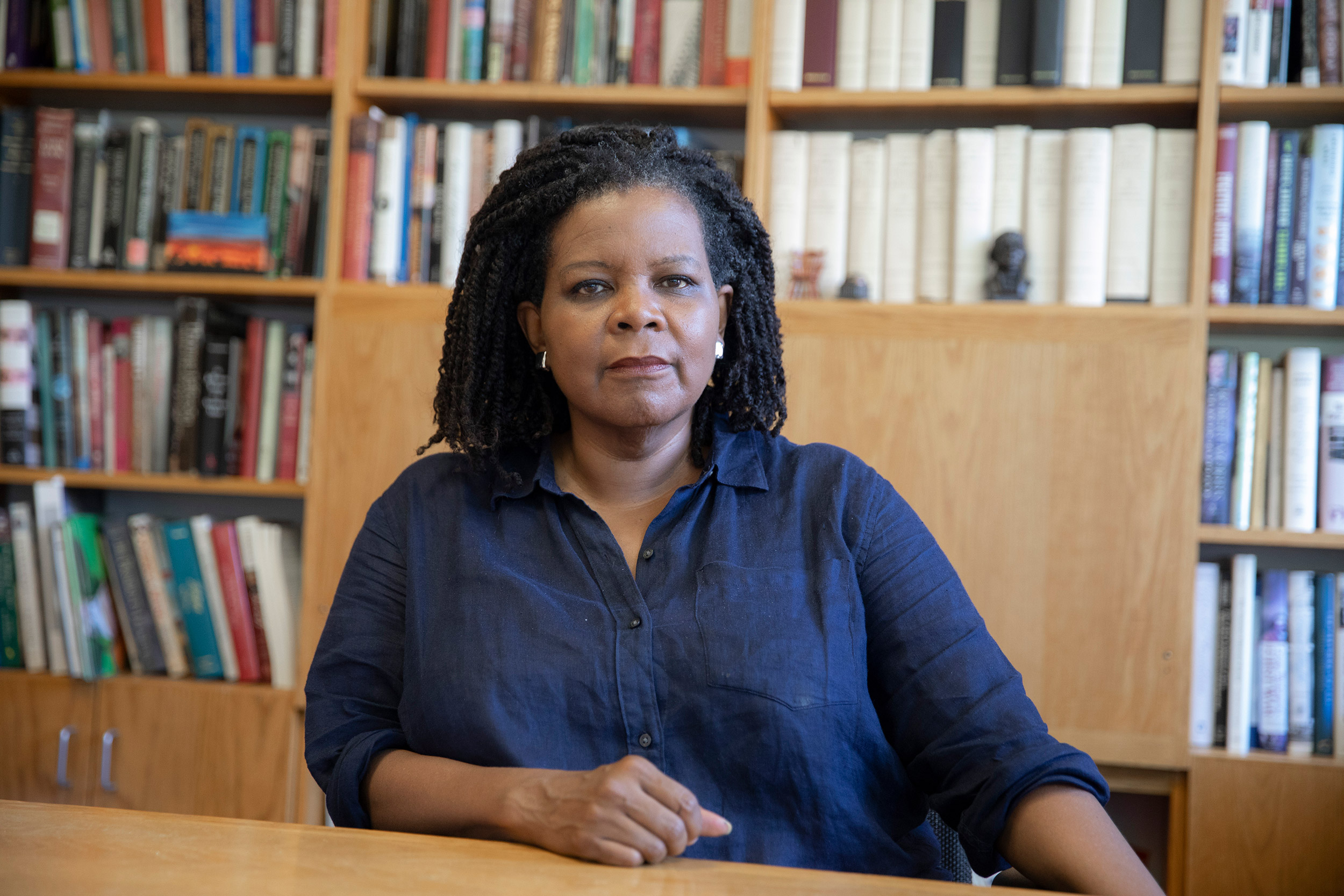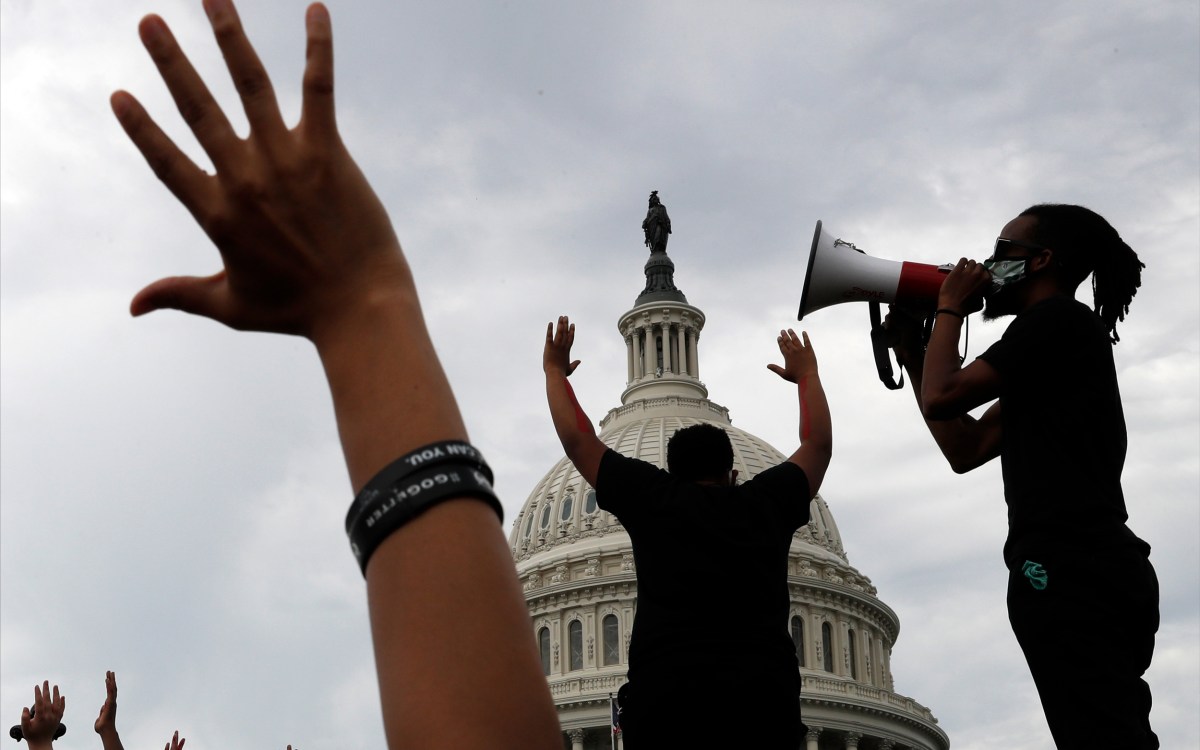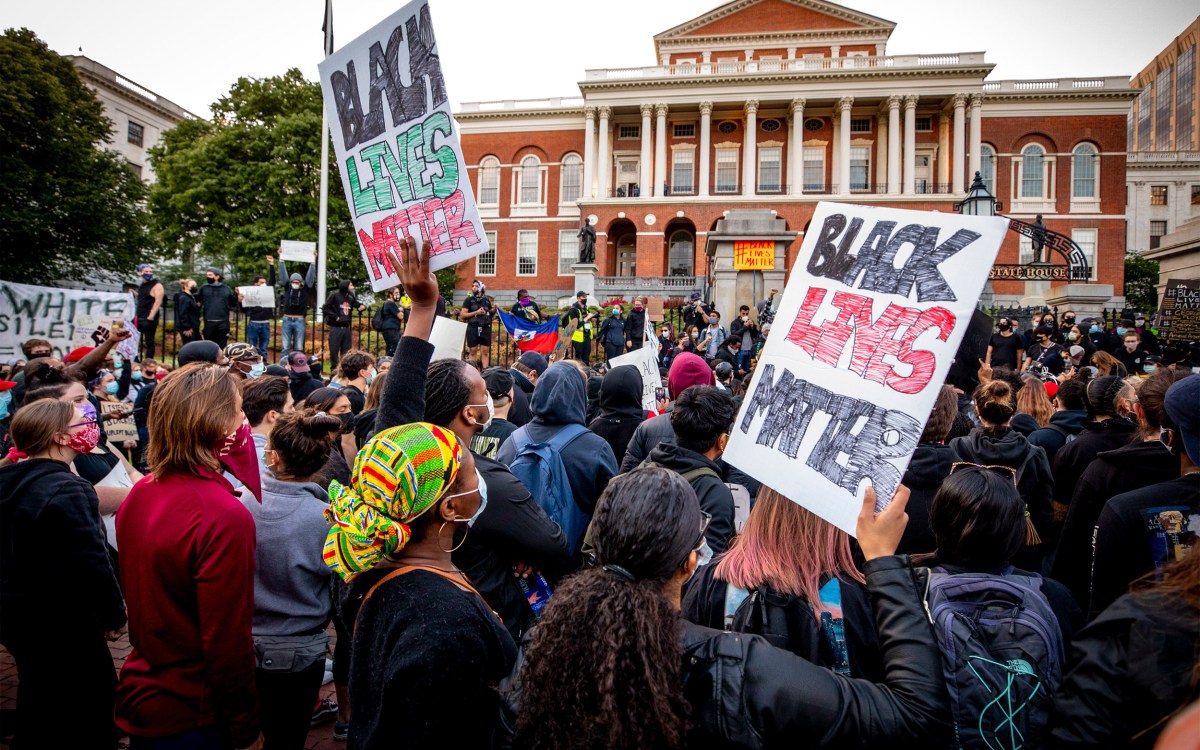
Protesters next to a statue of Confederate Gen. Robert E. Lee in Richmond, Va.
Artur Gabdrahmanov/Sputnik via AP
Must we allow symbols of racism on public land?
Legal scholar and historian puts the push to remove Confederate statues in context
The police killing of George Floyd sparked widespread protests and reignited efforts across the U.S. to remove Confederate and other statues viewed as symbols of slavery and racism. In several cities, these tributes have been vandalized or torn down by protestors or removed by public officials. A high-profile decision to tear down a famous bronze figure of Robert E. Lee in Richmond, Va., was halted by a court challenge, which was extended indefinitely on Thursday. A 2018 report from the Southern Poverty Law Center found there are more than 1,700 monuments to the Confederacy still in public spaces. Annette Gordon-Reed, a historian of U.S. slavery, legal scholar, and member of the Presidential Initiative on Harvard and the Legacy of Slavery, spoke with the Gazette about the issue. Gordon-Reed is a professor of history and the Charles Warren Professor of American Legal History at Harvard Law School. She won the Pulitzer Prize and National Book Award for her explosive 2008 work, “The Hemingses of Monticello: An American Family.”
Q&A
Annette Gordon-Reed
GAZETTE: In recent years, many have called for the removal of monuments honoring Confederate officials and other controversial figures, such as Christopher Columbus, with mixed results. Does this moment, and these efforts feel different to you?
GORDON-REED: This moment feels different because there’s been a great awakening in the country about police-on-citizen violence. The video of the officer with his knee on George Floyd’s neck was so extreme. There have been other videos, of course, but there is something about this image of a prone individual who is not moving and who we know is losing, or has lost, his life — after an encounter that started over an alleged counterfeit $20 bill. Was there no other way to handle that situation?
GAZETTE: As a law professor, what is your view on people unilaterally deciding to pull down statues they find offensive after officials — often enjoined by laws or judicial rulings barring such action — decline to do so? Is there a higher moral cause that supersedes the law?
GORDON-REED: Ha! That’s not fair, asking me as a law professor. OK, actually, that makes it easier. I cannot see myself pulling down a statue in that way. It would be odd for me to condone other people doing something I would not do. I certainly understand the emotion — the passion — particularly if government officials have turned a blind eye to previous petitions from the community.
“There is no path to a peaceful and prosperous country without challenging and rejecting that as a basis for our society.”
GAZETTE: What do you say to those who argue that the removal of such statues in prominent public settings dishonors the memory of those who died fighting for the Confederacy?
GORDON-REED: I would say there are other places for that — on battlefields and cemeteries. The Confederates lost the war, the rebellion. The victors, the thousands of soldiers — black and white — in the armed forces of the United States, died to protect this country. I think it dishonors them to celebrate the men who killed them and tried to kill off the American nation. The United States was far from perfect, but the values of the Confederacy, open and unrepentant white supremacy and total disregard for the humanity of black people, to the extent they still exist, have produced tragedy and discord. There is no path to a peaceful and prosperous country without challenging and rejecting that as a basis for our society.
GAZETTE: Many believe that taking the statues down is an attempt to cover up or erase history. Do you agree?
GORDON-REED: No. I don’t. History will still be taught. We will know who Robert E. Lee was. Who Jefferson Davis was. Who Frederick Douglass was. Who Abraham Lincoln was. There are far more dangerous threats to history. Defunding the humanities, cutting history classes and departments. Those are the real threats to history.

Kris Snibbe/Harvard file photo
GAZETTE: In the past, people have suggested the monuments should stay, but that additional plaques or other information should be incorporated to add context. What do you think of that idea? What are your thoughts on a separate museum for such statues?
GORDON-REED: Plaques can work in some situations. It depends on who the person is and what the objections are. As for museums, people I know who work in museums tear their hair out about this suggestion, that somehow, we’re going to ship all these Confederate monuments off to the lucky museum that has to find a place to put them.
GAZETTE: What about the slippery slope argument? Many of America’s founders — George Washington, Thomas Jefferson — owned slaves. Does removing statues of Columbus or Confederate officials pave the way for action against monuments honoring those who helped create the United States?
GORDON-REED: I suppose, if people want to, everything can pave the way to some other point. I’ve said it before: There is an important difference between helping to create the United States and trying to destroy it. Both Washington and Jefferson were critical to the formation of the country and to the shaping of it in its early years. They are both excellent candidates for the kind of contextualization you alluded to. The Confederate statues were put up when they were put up [not just after the war but largely during periods of Civil Rights tension in the 20th century], to send a message about white supremacy, and to sentimentalize people who had actively fought to preserve the system of slavery. No one puts a monument up to Washington or Jefferson to promote slavery. The monuments go up because, without Washington, there likely would not have been an American nation. They put up monuments to T.J. because of the Declaration of Independence, which every group has used to make their place in American society. Or they go up because of T.J.’s views on separation of church and state and other values that we hold dear. I think on these two, Washington and Jefferson, in particular, you take the bitter with sweet. The main duty is not to hide the bitter parts.
Interview was edited for clarity and space.








